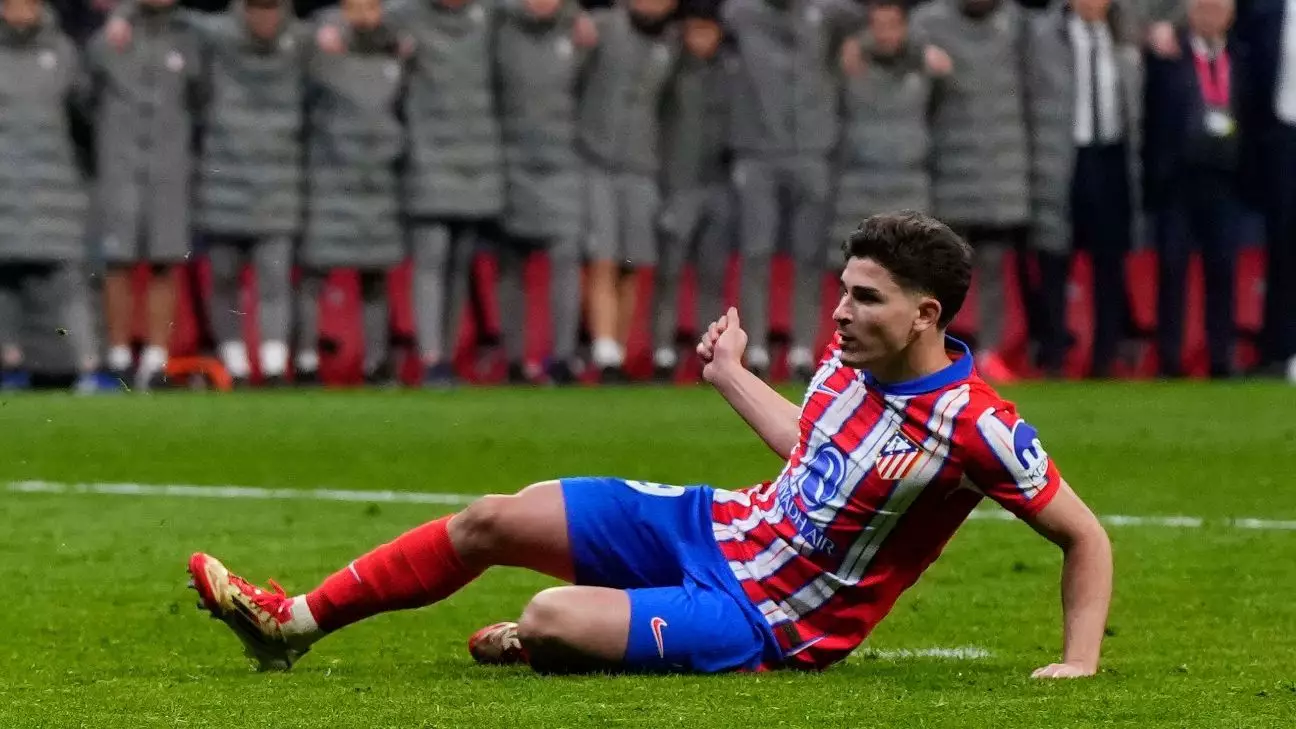In a significant move to address confusion surrounding penalty kick regulations, UEFA recently announced a pivotal clarification that emerged from a chaotic incident in the Champions League. The disqualification of Julián Álvarez’s goal due to an accidental double touch during a penalty shootout sparked a reassessment of soccer’s rules, showcasing the need for regulatory bodies to remain adaptable and responsive to unexpected game situations.
Historically, the laws governing penalty kicks have faced scrutiny; they often punish players heavily for inadvertent errors, leading to confusion among both officials and fans. This latest move by the International Football Association Board (IFAB) aims to rectify those ambiguities, especially concerning situations where players’ actions derive from slip-ups rather than a strategic foul. The recent Champions League incident helped shed light on these gray areas, spotlighting why the refereeing community has frequently struggled with consistency in execution.
The Implications of the New Rule
With the clarified understanding that a penalty kick resulting in an accidental double touch must be retaken, the implications stretch beyond mere technicalities. This adjustment emphasizes a broader principle in soccer: that the spirit of the game should be honored and not overshadowed by rigid interpretations of the rules. The rule change should be viewed as a significant win for fair play and sportsmanship, marking a shift toward a more empathetic approach to officiating.
The decision, set to take effect immediately during the Nations League semifinals, underscores the evolving nature of soccer as a sport that values player agency and fair competition over archaic punitive measures. It addresses previously harsh regulations, ensuring that players who experience slip-ups are not disadvantaged in crucial moments of a match. This represents a crucial understanding that sporting integrity can coexist with realistic assessments of player actions.
Challenges for Referees and Players Ahead
However, despite the positive trajectory of this rule change, a careful examination reveals potential challenges. Referees, often criticized for their decision-making under immense pressure, may find this new directive to be a double-edged sword. While it adds clarity, it also requires them to assess the intent behind a player’s actions on a more nuanced level. This could lead to further inconsistency as referees interpret the law; how does one distinguish between deliberate actions and unfortunate mishaps? The complexities introduced by the recreational spontaneity inherent in soccer could evoke more scrutiny and second-guessing during pivotal game moments.
Furthermore, players must adapt quickly to these changing dynamics. A heightened awareness of the new rules could lead to a shift in how penalty kicks are approached and executed, potentially crafting new strategies focused on risk assessment.
A Progressive Step for Soccer’s Governing Bodies
FIFA and IFAB’s willingness to amend the guidelines in light of recent events should be commended as a sign of responsive governance in football. An evolving framework demonstrates an awareness of the game’s history while aspiring for fairness in its future. As soccer continues to grow in prominence worldwide, rule changes like these not only harmonize play but also encourage critical discussions around tradition, fairness, and the role of technology in officiating. This change signifies that the game is being refined for its players, reminding us of the delicate balance between the rules and the essence of competition—a dynamic that remains as vital today as ever.

Leave a Reply